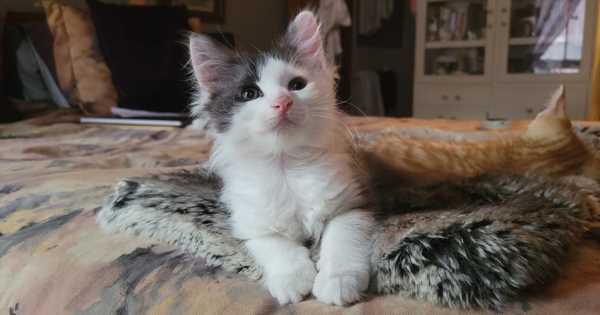
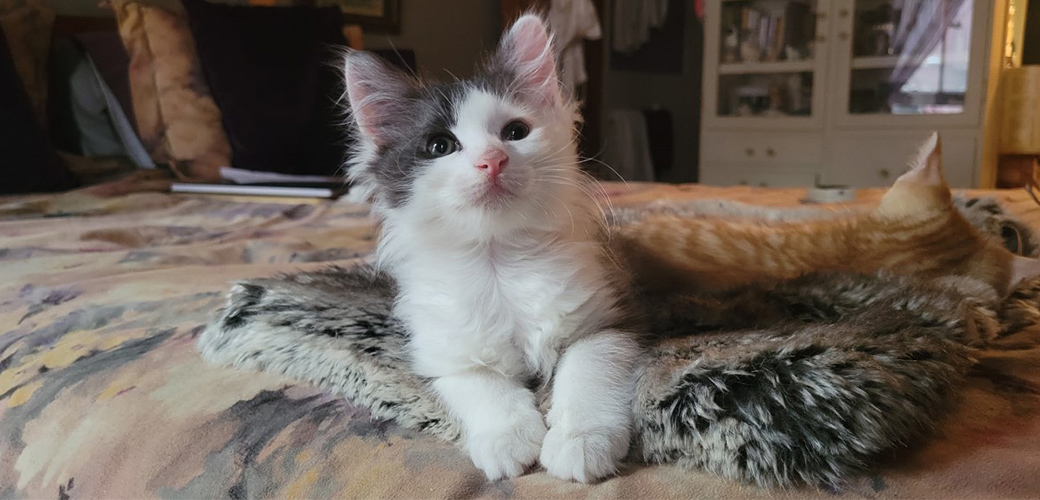
On July 3, a tiny stray kitten was left at Animal Care Centers of New York City’s Brooklyn location. Because he was too young to survive on his own, the kitten was transferred quickly to the ASPCA Kitten Nursery in Manhattan.
Only two days old, the fragile feline weighed 68 grams—the equivalent of about 14 nickels. Originally called Shrimp, the kitten was later renamed Oscar by the Kitten Nursery staff.

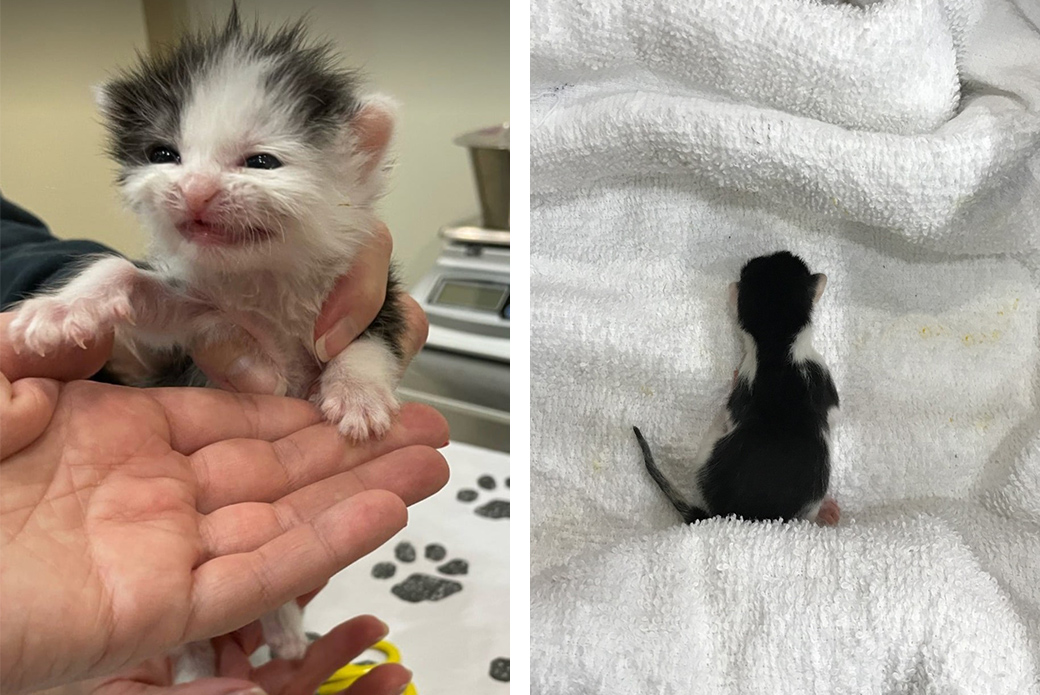
“Typical kittens are 100 grams when they’re born and gain 100 grams each week,” says Gemma Smith, Administrative Manager of the Kitten Nursery. “But Oscar was super small. That was his biggest challenge.”
Conquering A New Challenge
A second challenge arose when Oscar developed an upper respiratory infection (URI), which escalated to pneumonia. A kitten of his small size would typically not survive, but the ASPCA had recently purchased a Puppywarmer incubator and oxygen concentrator to treat young animals like Oscar. He was its second occupant.
“Kittens younger than five weeks old with severe URI and pneumonia can benefit from oxygen as long as they have a fair prognosis and are responding to therapy,” says Dr. Allison Bliss, Veterinary Staff and Program Manager of the Nursery.
The incubator has an infrared heater that keeps newborn kittens and puppies warm. It also attaches to nebulizers or oxygen concentrators if needed.

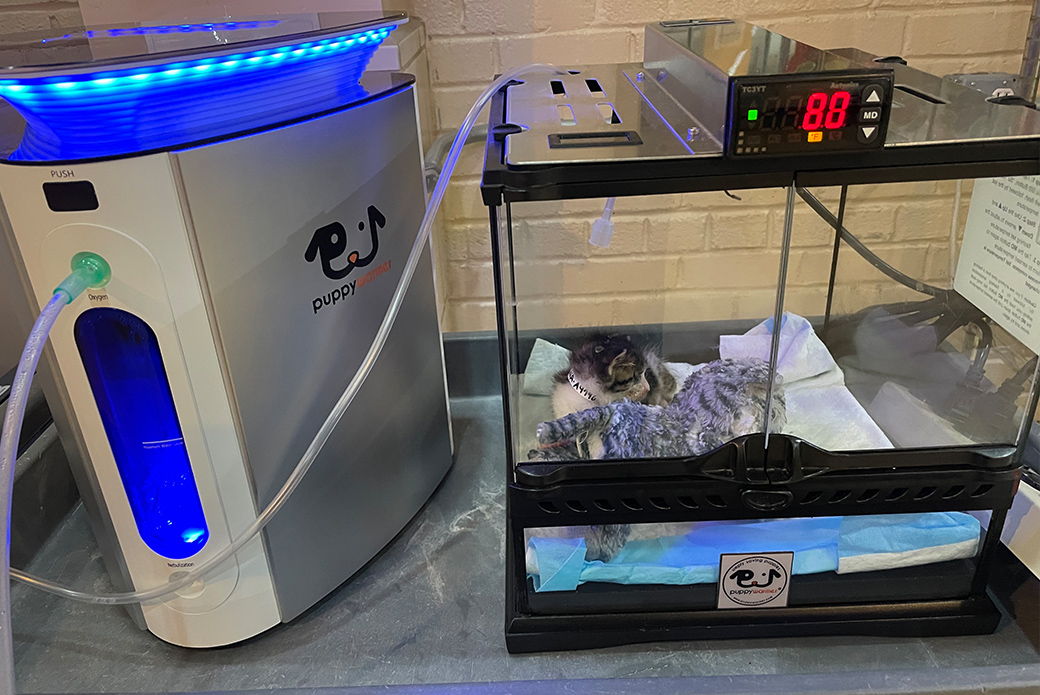
“Essentially, the oxygen concentrator takes oxygen from the air and concentrates it, which is different from an actual tank of oxygen that can be attached to a cage,” Dr. Bliss explains. “It delivers a higher percentage of oxygen to the lungs in patients who cannot oxygenate well on their own.”
Oscar remained in the incubator for 12 days before he was able to be weaned off it.
“Although he was tiny, Oscar was mighty,” says Gemma Smith. “Every day, we were rooting for him as he grew, little by little.”
The Benefits of Oxygen
Between April 1 and mid-October, the ASPCA Kitten Nursery admitted 613 neonate kittens like Oscar who were too young to survive on their own.
Some kittens spent time in the incubator with the oxygen concentrator, while others may not have needed such specialized treatment.
At 20 days old, Oscar was still small for his age.
“Slow and steady wins the race with him,” says Gemma. “We never stopped pulling for him.”
“For kittens who’ve benefitted from the incubator this season—to see how they’ve turned around is truly amazing,” says Meike Oliver, Senior Manager of the Kitten Nursery. “This innovation plays a major part in improving the health of our most vulnerable population and has enabled us to save more kittens than we would have previously.”
Moving on to Foster Care
On July 22, after Oscar reached a weight of 212 grams, he was placed in a foster home.
Amy Tribbey, an experienced foster caregiver, bottle-fed Oscar multiple times a day.
Nine days later, she took him back to the Nursery because he was coughing and wheezing. He was put back in the incubator/oxygen concentrator.

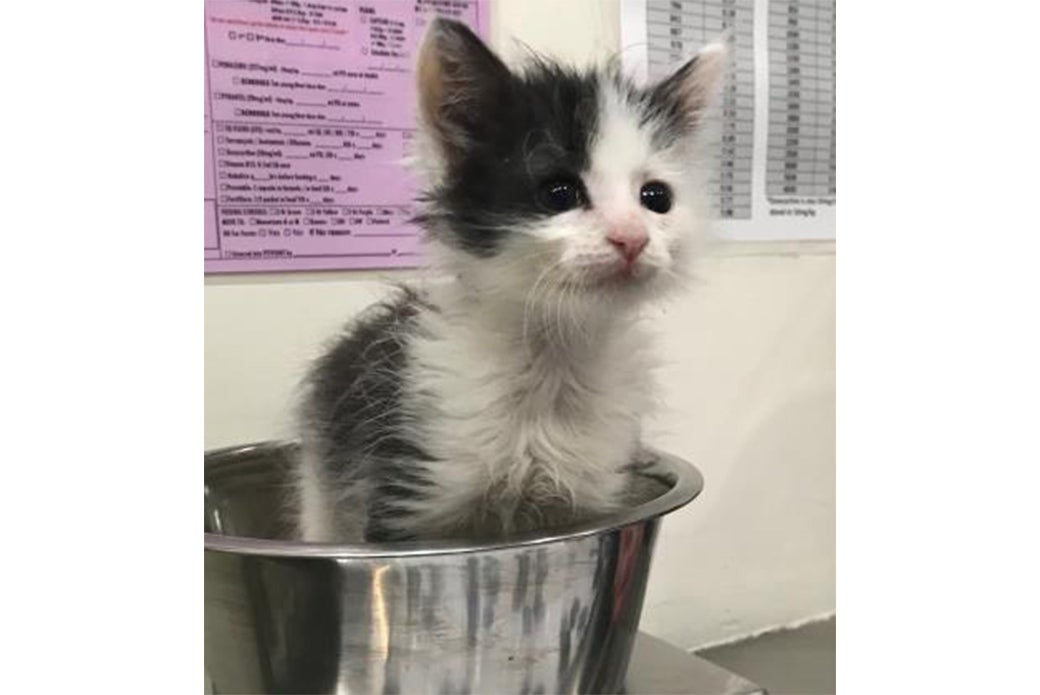
On August 12, Oscar returned to Amy’s house with another kitten named Ollie, who also suffered from a severe URI, which resulted in corneal scarring in one eye.
“This time Oscar was ready to eat wet food,” Amy says. “I was surprised because he had loved the bottle, but he transitioned to wet food easily. He’s a good eater—a champion eater. He even showed interest in dry food.”
Amy wrote lullabies that she sang to Oscar, and her husband Roger’s deep voice had a calming effect on the tiny feline.

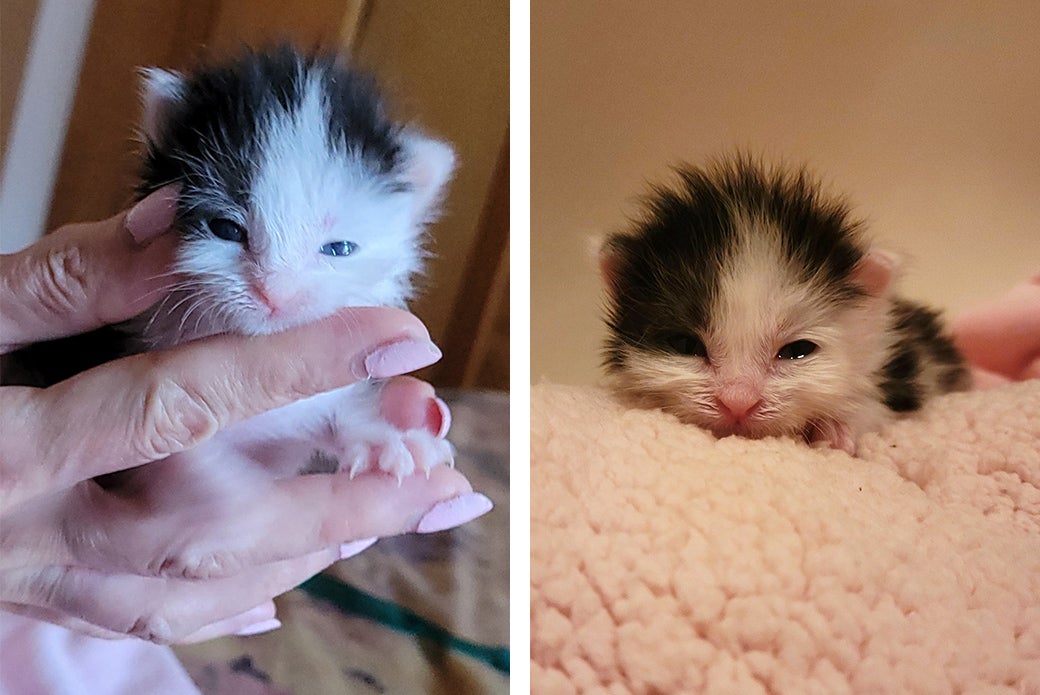
When jury duty interrupted Amy’s caregiving schedule in mid-September, Shannon Doherty, another foster, took over.
“Oscar was so cute,” says Shannon. “He’d put his face in front of the air conditioner to feel the air blowing. His favorite activity was swatting the strings on the ceiling fan, and he insisted I lift him so he could reach them. It was hard to return both kittens when they were ready for adoption.”

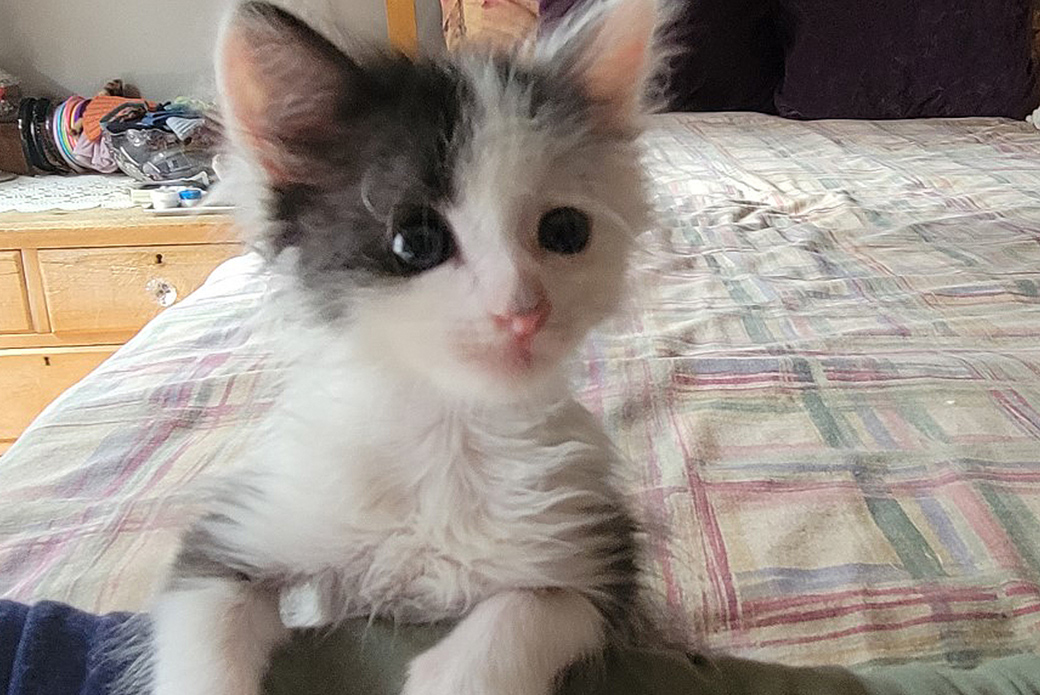
“A Lifelong Friend”
“Someone’s going to have a lifelong friend in Oscar,” Amy had predicted. “He has an independent personality and a curious nature. And with his big eyes and long beautiful fur, he’s a unique looking little boy.”
That someone turned out to be Manhattan resident Adam G., who adopted Oscar on October 11. Ollie, too, was adopted in early November.

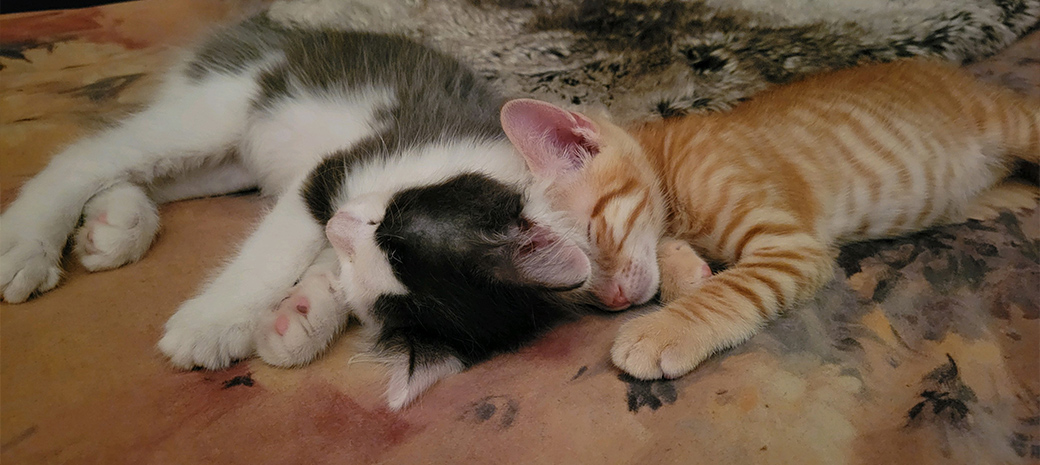
For young animals like Oscar, compassion, dedication and technology can make a huge difference in saving and sustaining their lives.


“Adding an incubator and oxygen concentrator for struggling neonates was a great innovation on the part of the Nursery team,” says Delia Kurland, Senior Director of Operations for the ASPCA Adoption Center and Kitten Nursery. “They never stop looking for new ways to save kittens.”
Source: Read Full Article
